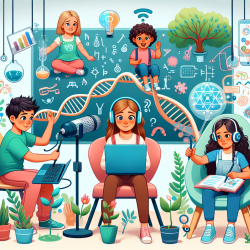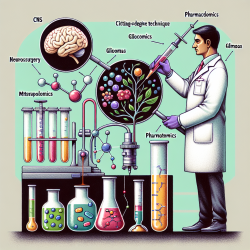The intersection of health and education is a rich area for exploration, particularly in the context of speech-language pathology and online therapy services. A recent research article titled "Health and Pathology: A Brief History of the Biopolitics of US Mathematics Education" provides valuable insights that can be applied to improve speech-language therapy practices. This blog aims to help practitioners implement these findings to create better outcomes for children.
Understanding Biopolitics in Education
Biopolitics, as explored in the research article, refers to the governance of populations through the management of health and disease. The study examines how health concerns have historically influenced mathematics education in the United States, highlighting three main themes:
- National health and decision-making
- Distinguishing health needs of student populations
- Enhancing students’ mental health and social adjustment
Applying Biopolitical Insights to Speech-Language Therapy
While the research focuses on mathematics education, its findings are highly relevant to speech-language pathology. Here’s how practitioners can implement these insights:
1. National Health and Decision-Making
Just as mathematics education aims to improve health-related decision-making, speech-language therapy can empower children to make better health decisions. Practitioners can integrate health literacy into therapy sessions, teaching children how to communicate effectively about their health needs. This can be particularly beneficial in the context of the COVID-19 pandemic, where clear communication is essential for understanding health guidelines.
2. Distinguishing Health Needs of Student Populations
The research emphasizes the importance of addressing health inequities. Speech-language therapists should adopt a differentiated approach, tailoring interventions to meet the unique needs of each child. This includes considering factors such as socioeconomic status, cultural background, and any pre-existing health conditions. Online therapy platforms, like those provided by TinyEYE, offer the flexibility to customize sessions, ensuring that each child receives the support they need.
3. Enhancing Mental Health and Social Adjustment
The mental health of students is a critical concern, especially during the pandemic. Speech-language therapists can play a pivotal role in enhancing children’s mental health by incorporating social-emotional learning into their sessions. Techniques such as mindfulness, positive reinforcement, and social skills training can help children adjust socially and emotionally, improving their overall well-being.
Encouraging Further Research
The research article serves as a reminder of the importance of continuous learning and adaptation in educational practices. Speech-language therapists are encouraged to delve deeper into the biopolitical aspects of education and health. Understanding these dynamics can lead to more effective and equitable therapy practices.
Conclusion
By integrating the biopolitical insights from the research into speech-language therapy, practitioners can enhance their approach to supporting children’s development. Tailoring interventions to meet diverse health needs, promoting health literacy, and prioritizing mental health are crucial steps toward creating better outcomes for children.To read the original research paper, please follow this link:
Health and Pathology: A Brief History of the Biopolitics of US Mathematics Education.










